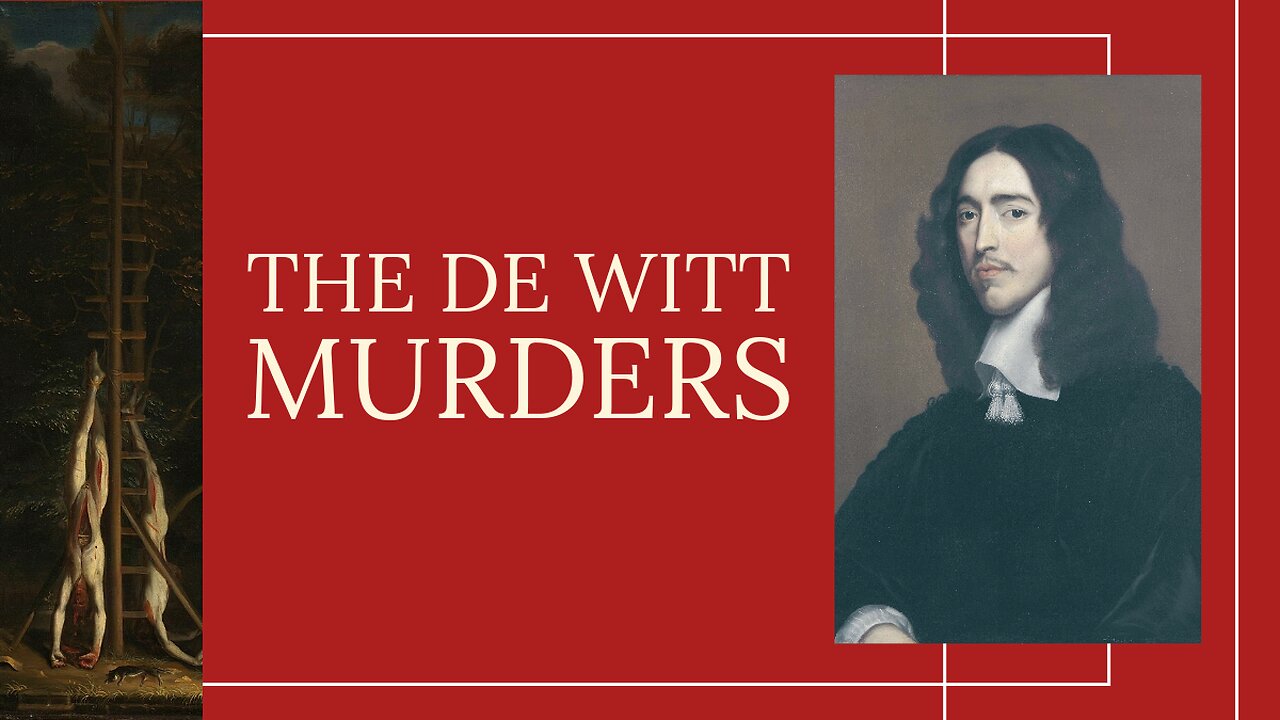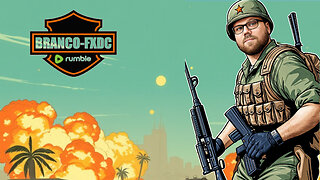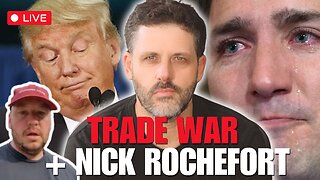Premium Only Content

The Dark Tale: The Murder and Possible Cannibalism of Johan de Witt
The murder of the de Witt brothers, Cornelius and Johan de Witt, is a tragic and infamous event that occurred during the 17th century in the Netherlands. The brothers were prominent politicians and statesmen who played crucial roles in the Dutch Republic. Their deaths were a result of political turmoil and mob violence during a turbulent period known as the Rampjaar or "Disaster Year."
Cornelius and Johan de Witt were born into a wealthy and influential family. Cornelius, the older brother, served as the Grand Pensionary of Holland, effectively the head of government, while Johan held various political positions, including that of the Raadpensionaris (Council Pensionary) of Holland.
In 1672, the Dutch Republic faced a dire crisis as it was invaded by France, England, and several German states. The conflict, known as the Franco-Dutch War, led to widespread panic and instability within the country. The de Witt brothers' policies and efforts to maintain peace and diplomatic solutions were met with criticism and anger from those who favored a more aggressive stance.
On August 20, 1672, amidst the chaos of the Rampjaar, the de Witt brothers were attacked by a mob of Orangists, who were supporters of the House of Orange and favored a strong monarchy. The mob broke into the prison in The Hague where the brothers were being held and brutally lynched them.
The murder of the de Witt brothers shocked the nation and reverberated throughout Europe. It was a poignant symbol of the instability and violence that characterized the time. Their deaths also marked a turning point in Dutch politics, as the House of Orange gained more power and the republic began to shift towards a more monarchical system.
The memory of the de Witt brothers has endured through history, and they are remembered both for their political contributions and the tragic manner of their deaths. The events surrounding their murder serve as a cautionary tale about the dangers of mob violence and political extremism, while their lives stand as a testament to the complexities of governance and the challenges faced by leaders during times of crisis.
-
 LIVE
LIVE
BrancoFXDC
2 hours ago $0.21 earnedWarzone Rebirth Rounds
441 watching -
 1:44:14
1:44:14
Glenn Greenwald
8 hours agoRubio's Shift: What is Trump's Foreign Policy? Trump/Musk Attack CIA Fronts USAID & NED: With Mike Benz | SYSTEM UPDATE #401
65.1K58 -
 1:05:47
1:05:47
Donald Trump Jr.
10 hours agoMexico Sends Troops to Border, Plus USAid Scam Exposed, Live with Brooke Goldstein & Rep Brian Mast | TRIGGERED Ep.213
214K148 -
 9:26
9:26
Rethinking the Dollar
6 hours agoUnbelievable Government Waste: 5 Outrageous Biden-Era Spending Sprees
20.2K12 -
 DVR
DVR
Flyover Conservatives
23 hours agoDR. KIRK ELLIOTT | Deep Dive: Tariffs, Tech, and Total Economic Warfare – Who Wins and Who Loses? | In Studio - FOC Show
42.4K1 -
 DVR
DVR
Danny Polishchuk
8 hours agoTariffs and Trade Wars + Nick Rochefort | Low Value Mail #136
30.3K1 -
 2:04:40
2:04:40
I_Came_With_Fire_Podcast
10 hours agoCartels vs The United States, Fentanyls 2 Front WAR, and FTOs
14.1K -
 4:54
4:54
CryptoWrld
11 hours ago $0.84 earnedCrypto Startup Launches Tokenized US Treasury Bonds
15.6K2 -
 2:29:15
2:29:15
We Like Shooting
16 hours ago $0.30 earnedWe Like Shooting 596 (Gun Podcast)
10.2K -
 54:43
54:43
Kimberly Guilfoyle
10 hours agoThe Trump Effect: Mexico Folds, Live with Dinesh D’Souza & Chuck DeVore | Ep.193
94.8K32